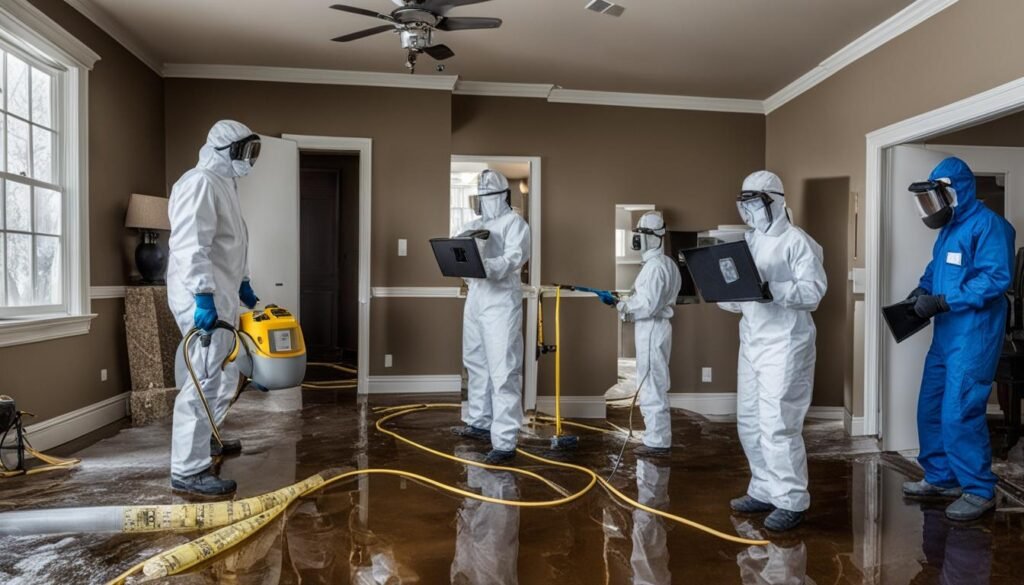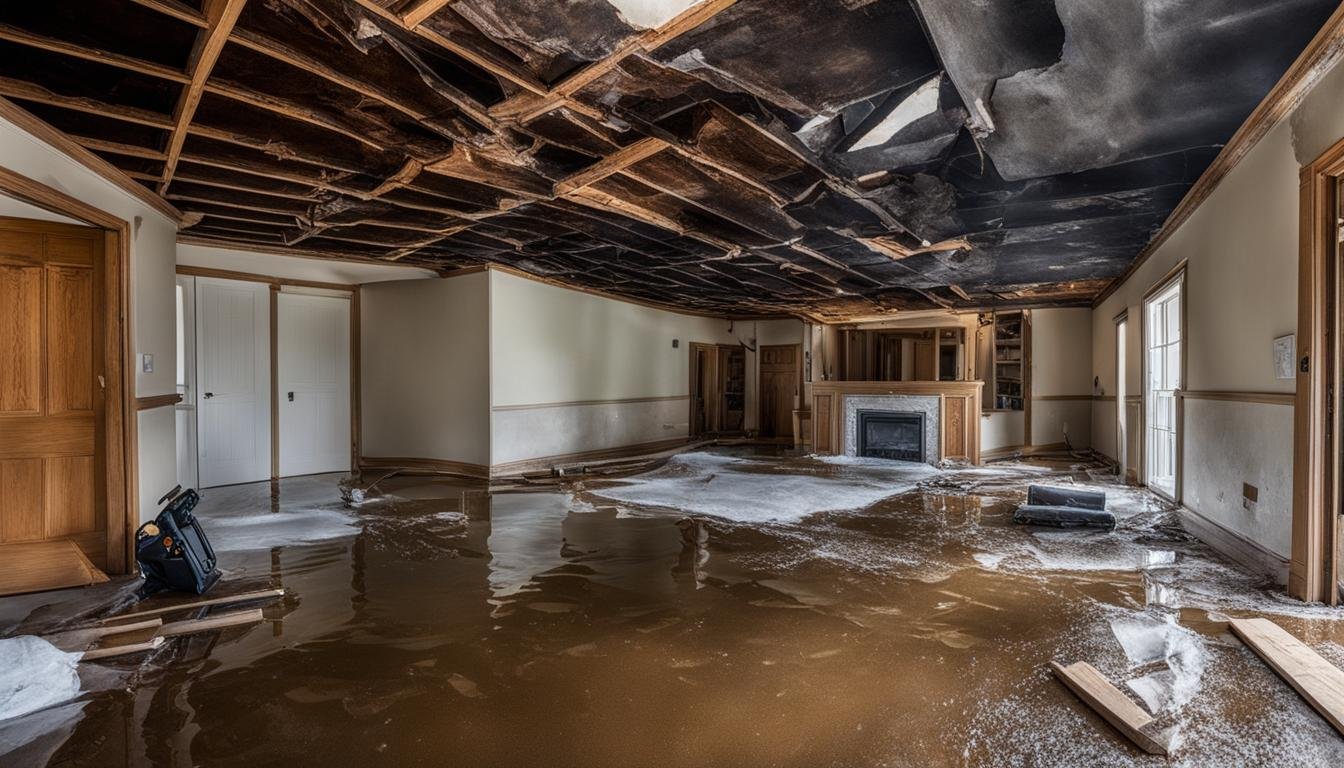When searching for a new home, you may come across water-damaged houses. While this may initially seem like a cause for concern, buying a water-damaged home can actually present an opportunity for a great deal on a property. However, it’s important to approach the purchase with caution and be aware of the potential challenges and costs that may come with it.
One of the first things to look out for when considering a water-damaged house is visible signs of damage. Stains on walls or ceilings, peeling paint or wallpaper, and musty odors are all indicators of water damage. Before making a decision, it’s advisable to have a professional complete a comprehensive water damage inspection and obtain a written home inspection report. This will give you a better understanding of the extent of the damage and the repairs that may be required.
Location is also an important factor to consider when purchasing a water-damaged home. Determine if the house is in a flood zone and research the potential risks associated with that location. It’s essential to obtain homeowner’s insurance quotes and consider the additional cost of flood insurance if necessary.
Once you have purchased a water-damaged home, immediate repairs should be made to prevent further damage and potential mold growth. Take detailed documentation of the damage through pictures, videos, and receipts. This will be important when filing insurance claims.
Working with a real estate agent experienced in buying and selling water-damaged homes can provide valuable guidance throughout the process. They can help you navigate the challenges and ensure that you make an informed decision.
- Thoroughly inspect the water-damaged house for visible signs of damage.
- Obtain a comprehensive water damage inspection and written home inspection report.
- Consider the location of the house and the potential risks associated with it.
- Secure homeowner’s insurance quotes and, if needed, flood insurance.
- Make immediate repairs to prevent further damage and mold growth.
The Role of Home Inspectors in Buying Water-Damaged Houses
When purchasing a house with water damage, enlisting the expertise of home inspectors is crucial. These professionals play a vital role in assessing the extent of the damage and providing detailed reports, especially when it comes to issues related to water damage.
During the inspection process, home inspectors are trained to identify common signs of water damage. They meticulously examine the property for stains, water rings, and musty odors, all of which can indicate the presence of water damage. Additionally, home inspectors evaluate the HVAC system and other potential sources of water damage to provide a comprehensive assessment of the property’s condition.
It’s important to note the distinction between home inspections conducted by licensed inspectors and assessments carried out by water damage restoration companies. While both are essential in their respective ways, home inspections focus on evaluating the overall condition of the property, including identifying any water damage concerns.
Furthermore, homebuyers should consider additional services that home inspectors may offer, such as mold testing. Detecting the presence of mold is crucial, especially when buying a water-damaged home, as it can lead to further issues if not properly addressed. If mold is detected, it may be necessary to hire professional mold remediation services.
Ultimately, the thorough assessment provided by home inspectors is invaluable when making informed decisions about purchasing water-damaged houses. Their expertise ensures that buyers have a comprehensive understanding of the property’s condition, allowing them to determine the necessary repairs and associated costs.
Home Inspector Checklist for Water-Damaged Houses
- Inspect for signs of water damage, such as stains, water rings, and musty odors.
- Evaluate the HVAC system and other potential sources of water damage.
- Check for visible signs of mold and conduct mold testing if necessary.
- Assess the extent of the damage and provide a detailed report.
- Differentiate between water damage and other structural issues.
Remember, hiring a qualified home inspector is crucial to ensure the accuracy of the assessment. Their expertise and thorough evaluation provide buyers with the necessary information to make informed decisions about purchasing water-damaged houses.

The Impact of Water Damage on Homes and the Buying Process
Water damage can have serious consequences for a property, both immediate and long-term. When water infiltrates a home, it can result in contamination, damage to flooring and furniture, increased humidity levels, and the growth of mold and fungi. If left untreated, water damage can lead to rotting wood, foundation problems, and the need for extensive repairs. These issues can significantly impact the value and safety of a home.
When considering buying a home with water damage, it is crucial to thoroughly assess the extent of the damage and determine the source of the water intrusion. Signs to watch out for include peeling paint, wet spots, musty odors, and damaged drywall. Hiring a professional home inspector is essential to identify hidden water damage and provide an expert assessment of the repairs needed.
Consulting with professional water damage cleanup experts and contractors can give you a better understanding of the scope of the restoration work and the associated costs. Obtaining multiple estimates from local water damage experts will help you make an informed decision about the property’s feasibility and your potential investment. Moreover, it is essential to consider homeowner’s insurance coverage for water damage and evaluate the need for additional flood insurance if the property is located in a flood zone.
To protect yourself and your investment, it’s crucial to take these necessary steps when buying a water-damaged home. With the guidance of experienced professionals and thorough inspections, you can make informed decisions and ensure that the necessary repairs are completed before moving forward with the purchase.
FAQ
What are some signs of water damage in a house?
Signs of water damage include stains on walls or ceilings, peeling paint or wallpaper, and musty odors.
Should I have a professional inspect the water damage before buying a house?
Yes, it is recommended to have a professional complete a comprehensive water damage inspection and obtain a written home inspection report.
What should I consider before buying a water-damaged house?
Consider the location of the house, whether it’s in a flood zone, and obtain homeowner’s insurance quotes to factor in potential insurance rate increases.
What immediate repairs should be made after purchasing a water-damaged home?
Immediate repairs should be made to prevent further damage and potential mold growth.
How important is documenting the water damage for insurance claims?
Documenting the damage through pictures, videos, and receipts is essential for insurance claims.
Is it beneficial to work with a real estate agent experienced in buying and selling water-damaged homes?
Yes, working with a knowledgeable real estate agent can be helpful in navigating the process of buying a water-damaged home.
What role do home inspectors play in buying a house with water damage?
Home inspectors assess the extent of the damage, identify signs of water damage, evaluate potential sources of damage, and may offer additional services like mold testing.
What are the consequences of water damage on a property?
Water damage can lead to contamination, damage to flooring and furniture, increased humidity levels, and the growth of mold and fungi.
What should I look for when buying a water-damaged home?
Look for signs such as peeling paint, wet spots, musty odors, and damaged drywall. Determine the extent of the damage, the source of the water, and the repairs that have been made.
What insurance coverage should I consider for water damage?
Consider homeowner’s insurance coverage for water damage and the cost of flood insurance if the property is located in a flood zone.


